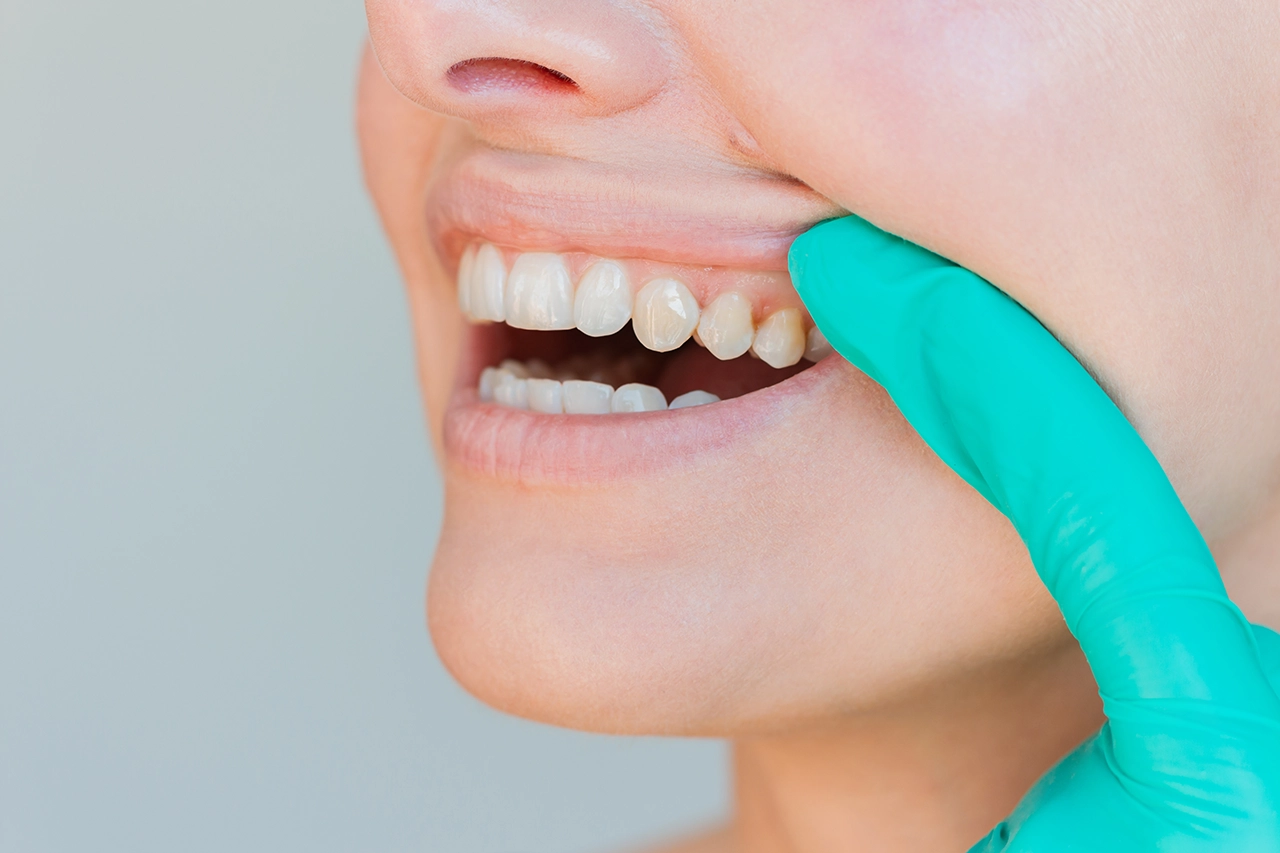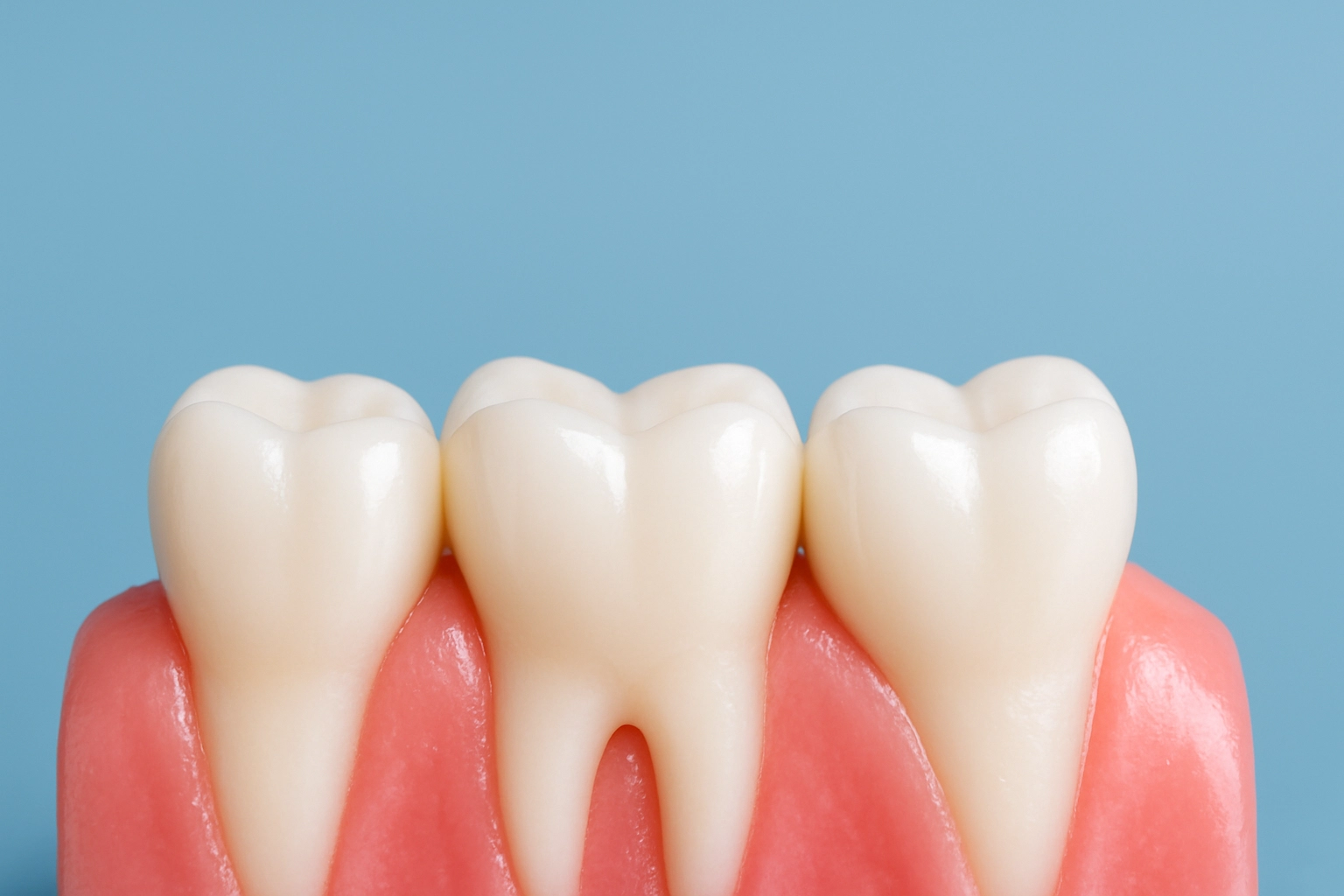
What Is Gum Disease? Early Signs and How to Prevent It in UK
Gum disease is one of the most common - but least talked about - oral health conditions among adults. Often silent in its early stages, it can lead to serious consequences like bone loss and tooth loss if left untreated.
At Brighton Implant Clinic, we believe education is the first step to prevention. Let’s explore the full picture of gum disease: its signs, causes, prevention, and treatment options available today.
Understanding Gum Disease: From Gingivitis to Periodontitis
Gum disease, also known as periodontal disease, is a progressive condition that affects the tissues and bone that support your teeth. It typically starts as gingivitis, a mild and reversible inflammation of the gum tissue. If not addressed early, it may develop into periodontitis - a more severe infection that can cause gums to pull away from your teeth, destroy tissue and bone, and ultimately lead to tooth loss.
Gingivitis is primarily caused by dental plaque, a sticky, colorless film of bacteria that forms on the teeth and gums. Without proper brushing and flossing, plaque hardens into tartar, which requires professional removal. When plaque and tartar remain, they irritate the gum tissue, triggering a response that leads to inflammation and infection.
Causes and Risk Factors of Gum Disease

Understanding what causes gum disease - and who is most at risk - can help you take proactive steps toward prevention.
Common Causes:
- Plaque buildup due to poor oral hygiene
- Tartar accumulation below the gum line
- Bacterial infection spreading from untreated gingivitis
Key Risk Factors:
- Smoking and tobacco use – restrict blood flow, masking symptoms
- Diabetes – compromises the body’s ability to fight infection
- Medications – such as antihypertensives or anti-epileptics that reduce saliva
- Genetics – some individuals are more susceptible due to inherited traits
- Crooked or crowded teeth – make plaque removal more difficult
Gum Disease Early Signs and Symptoms to Watch For
Gum disease is often referred to as a “silent” condition because it can develop and progress without causing immediate pain or noticeable discomfort. That’s precisely why routine dental check-ups are critical - they allow early signs to be caught and addressed before the disease becomes advanced or irreversible.
In its earliest stage, known as gingivitis, gum disease may present only subtle symptoms. However, being aware of these changes can make all the difference in preserving your oral health.
Common early signs include:
- Red, swollen, or tender gums - Healthy gums should be firm and pale pink. If they appear inflamed or feel sore, it could be a sign of inflammation caused by plaque buildup.
- Bleeding while brushing or flossing - Occasional bleeding might seem harmless, but it’s often the first visible indicator that your gums are under stress or infected.
- Persistent bad breath or a bad taste in the mouth - This can result from bacterial activity in plaque and tartar, especially when it collects below the gum line.
- Receding gums or teeth that appear longer - As gum tissue pulls away from your teeth, it may expose more of the tooth surface or even the root, increasing sensitivity.
- Loose or shifting teeth - In more advanced stages, gum disease begins to affect the tissue and bone that hold your teeth in place, resulting in mobility or changes in bite alignment.
These symptoms can range from mild to severe, and they tend to worsen gradually without proper care. It’s important to remember that gum disease isn’t always painful, particularly in its early stages. Many patients dismiss early signs simply because there’s no discomfort.
Don't wait for pain to take action. If you notice even one of these symptoms, it’s time to see a dentist or dental hygienist. With early intervention, gum disease can often be managed - or even reversed - before it causes lasting damage.
The Importance of Early Gum Disease Detection
Timely diagnosis is the key to preventing irreversible damage. During your routine dental check-up, your dentist or hygienist will:
- Use a periodontal probe to measure pocket depths around each tooth
- Evaluate gum bleeding and plaque levels
- Take radiographs (X-rays) to assess potential bone loss
Early-stage gum disease (gingivitis) can often be reversed with good oral hygiene and professional dental cleaning. But periodontitis requires more targeted intervention.
Gum Disease Preventative Measures: Daily Oral Hygiene Practices

The best way to prevent gum disease is through consistent daily care. Brushing and flossing are your first line of defense against plaque buildup.
Daily habits that protect your gums:
- Brush at least twice daily with fluoride toothpaste using a soft-bristled brush
- Clean between teeth with floss or interdental brushes
- Use an antiseptic mouthwash to reduce bacteria
- Eat a balanced diet rich in antioxidants and low in sugars
Professional Interventions: Scaling and Root Planing
If early gum disease has progressed, a professional dental cleaning may not be enough. Your dentist or dental hygienist may recommend scaling and root planing - a deep cleaning technique that removes plaque and tartar from below the gum line and smooths the root surfaces.
What to Expect:
- Local anaesthesia may be used for comfort
- Both ultrasonic and hand instruments are employed
- Post-care includes antimicrobial rinses and possible antibiotics
This treatment helps gum tissue reattach to the tooth surface and reduces pocket depth, halting disease progression.
Advanced Treatments for Periodontitis
When standard cleaning methods are insufficient, surgical intervention may be required. Your periodontist will assess the depth of the pockets and the extent of gum and bone damage.
Surgical Options Include:
- Flap surgery to access and clean deep pockets
- Bone grafts to regenerate lost bone support
- Tissue grafts to restore receded gums
- Guided tissue regeneration using membranes or growth factors
These treatments aim to preserve natural teeth and restore healthy attachment between gum and bone.
The Link Between Gum Disease and Overall Health

Research continues to affirm that gum disease is more than just a dental issue—it has systemic implications.
Health Risks Linked to Periodontitis:
- Increased risk of coronary artery disease
- Poor blood sugar control in diabetes patients
- Low birth weight or preterm birth in pregnant individuals
- Links to respiratory infections
According to the American Dental Association (ADA), maintaining healthy gums contributes to better overall health outcomes.
Brighton Implant Clinic’s Approach to Gum Health
At Brighton Implant Clinic, our mission is to deliver world-class periodontal care and restorative solutions to protect and restore your smile.
Our Approach:
- Thorough periodontal assessments during every routine visit
- Tailored treatment plans that may include scaling, root planing, or gum surgery
- Restorative solutions like dental implants when tooth loss has occurred
- Patient education to promote lifelong oral hygiene
With clinics in Brighton, Hove, Hailsham, and Worthing, we make it easy for patients across Sussex to receive expert periodontal care.
Gingivitis vs Periodontitis
Frequently Asked Questions
Can gum disease be reversed?
Yes - gingivitis, the early form of gum disease, is completely reversible with proper brushing, flossing, and professional dental cleanings. Periodontitis, however, requires long-term management.
How often should I see a dentist to prevent gum disease?
We recommend visiting your dentist every six months for check-ups and cleanings. If you’re at higher risk (e.g., diabetic or smoker), your dentist may suggest more frequent visits.
What happens if gum disease goes untreated?
Without treatment, gum disease can lead to progressive bone and tooth loss. It also increases your risk for systemic issues like cardiovascular disease and uncontrolled diabetes.
Is gum disease contagious?
While the disease itself isn’t contagious, the bacteria that cause gum disease can be transmitted through saliva—so good hygiene practices are important for couples or families.
Are dental implants an option if I’ve lost teeth due to gum disease?
Absolutely. At Brighton Implant Clinic, we specialize in implant solutions for patients who’ve experienced tooth loss due to advanced periodontal disease. With proper planning and bone grafting if needed, implants can offer a fixed, natural-feeling solution.
Conclusion
Gum disease may be common, but it’s far from harmless. Early diagnosis, proper hygiene, and expert dental care can protect your teeth, your gums, and your long-term health. If you’ve noticed any signs of gum disease - or if it’s been more than six months since your last dental check-up - don’t wait.
Book a consultation at Brighton Implant Clinic today and take the first step toward a healthier, more confident smile.
Schedule your appointment today!










